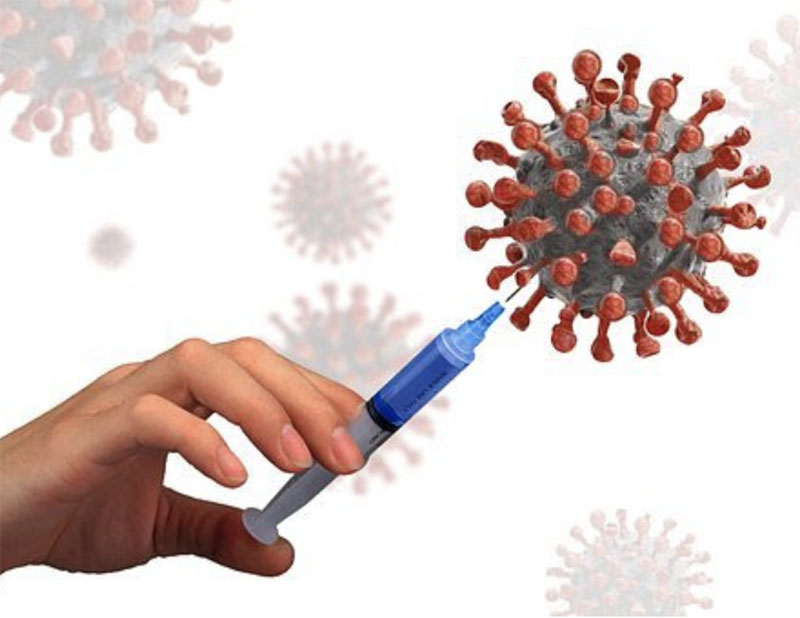Decoding the COVID19 Vaccine

December 2020 heralded the release of the COVID19 vaccine. It was created at an unprecedented speed after a clinical trial demonstrated its efficacy. The vaccine was shown to be 95% effective in protecting humans against the COVID19 virus.
Many in the public are skeptical about this vaccine. I would like to offer some basic knowledge to assist in clarifying any confusion you might have about how this vaccine works to protect against the COVID19 virus.
First, a recap of the immune system and how vaccines work:
When a foreign protein (antigen) enters our body, our innate immune system is the first to respond. This part of our immune system consists of ‘foot soldiers’ on the front lines that see the enemy and run towards it to destroy it. These foot soldiers are billions of Natural Killer (NK) cells, whose job is to attack any foreign antigen that is considered a threat to the body. These are released into the bloodstream by the liver, which finds and kills the foreign antigen through a process called phagocytosis. This antigen could be a virus, a bacteria, or a cancer cell. After killing it, parts of the antigen are carried on the surface of these cells and presented to the adaptive immune system, where a type of B-cell called plasma cells manufacture antibodies against the specific parts of the antigen presented to them. This takes a few days to occur after the antigen first enters the body. Another category of B-cells called memory cells, memorize the configuration of the antigen that the antibodies are made against, and lay waiting in case the same antigen invades again. If the antigen enters the body, the memory cells stimulate antibody production which destroys the antigen and protects the body from invasion.
Antibodies are Y-shaped proteins whose tips are shaped to fit a precise antigen, like a lock and key. Antibodies bind to precise antigens they are created against, forming antigen-antibody complexes. The reaction is called an antigen-antibody reaction. This reaction draws white cells towards the complex whose job is to phagocytose and destroy these complexes. During immune reactions, cytokines are released by white cells, necessary to signal more cells for assistance in defending the body. The side effects of cytokines include inflammation, fever, and fatigue, and when too many cytokines are released, they can cause high fever and tissue damage.
The same antigen-antibody reaction described above occurs after a vaccine is administered. A vaccine contains an antigen or parts of it that are injected into the body to stimulate the production of antibodies, in this case, against the COVID19 virus.
Many vaccines are made from the actual virus or bacteria. This introduces the infectious particle itself into the body. The virus or bacteria is typically weakened or attenuated before it is injected. For example, the influenza vaccine contains the influenza virus (which causes the flu), in an attenuated state. This is why some people can actually get the flu after being vaccinated, especially if their immune system is weakened by an illness or an unhealthy lifestyle.
The COVID19 vaccine is different from a vaccine that contains an infectious particle in a fundamental way. It does not contain an attenuated COVID virus. Instead, the antigen injected into the body is a strand of the genetic code of the COVID19 virus, the part of its blueprint for the spike protein, which sticks out from its capsule. The spike protein contains the docking mechanism needed by the COVID19 virus to engage with the surface of cells (receptors) to enter them. The antigen in this vaccine, a messenger RNA that codes for its spike protein was synthesized in the laboratory by copying the genetic sequence from COVID19, then surrounded by a lipid or fat layer creating a lipid nanoparticle. This lipid layer helps it merge with the lipid layer of the cells in our body for easy entry of the messenger RNA into the cell. Our cells then use the RNA to manufacture the spike protein of the virus. Once the spike protein is manufactured, our cells recognize it as foreign and mount an antibody response against it. This takes about 2 to 3 days after vaccination. Antibodies generated to destroy the spike protein, memory cells are created, and if the COVID19 virus enters our body after vaccination, the immune system will recognize the spike protein on the COVID19 capsule as the foreign antigen it has seen before (from the vaccine) and create antibodies against it. The antibodies will attack the spike protein and destroy it, preventing the entry of the virus into our cells. The mRNA present in the vaccine is short-lived, never enters our cell’s nucleus containing our DNA, and completely degrades within a few days. It does not become a permanent part of our DNA.
Since no infectious particles are used in this vaccine, its side effects are relatively mild. These include soreness at the vaccination site and a mild cytokine reaction described earlier, with fatigue and possibly a low-grade fever that lasts for a couple of days. The mild cytokine reaction is an indication of an antigen-antibody reaction confirming the presence of antibodies made against the spike protein after vaccination. The COVID19 vaccine is administered in two doses delivered 3 weeks apart. After the first vaccine, a booster is given 3 weeks later, which amplifies the antibody response, ensuring greater protection against COVID19.
So far three companies have manufactured the COVID19 vaccine, Pfizer, Moderna, and Oxford (AstraZeneca-Oxford). Both the Pfizer and Moderna vaccine is available in the U.S.
In the clinical trial conducted by Pfizer and Moderna, 95% of participants developed immunity against COVID19 after vaccination. The clinical trial was quite large and the phase 3 trial included over 43,000 subjects, 45% of whom were 56 – 85 years of age, from diverse backgrounds. So far, the COVID19 vaccine shows great promise with few side effects.
We know that in patients infected with COVID19, antibodies last about 6 months or longer post-infection, and reinfection can occur after even being infected after this period of time. It is not clear how long the antibodies produced after vaccination will have a protective effect. It is still too early to tell.
Another concern for researchers has been a question about the efficacy of the vaccine if the COVID19 virus mutates in a way that makes the vaccine ineffective. Remember, antibodies are specific for specific antigens, in this case, the spike protein of the virus. If the virus mutates after people are vaccinated, completely changing the composition of the spike protein, the antibodies won’t work to neutralize the mutated antigen.
The COVID19 virus has gone through two mutations per month since it entered the human population a year ago. This is a known phenomenon among viruses. When a virus jumps from animal to human, as in the case with this virus, it mutates to become more stable in its human host to spread more effectively.
If today’s COVID19 virus is compared to the original one originating in Wuhan in December 2019, it has undergone 25 mutations in the past year! So far, one mutation of potential concern relative to the vaccine is that of the docking apparatus of the spike protein. This has been called the N501 mutation.
As we now know, all three vaccines released so far stimulate the immune system to attack the spike protein of the virus. The good news is, one area of mutation on the virus may not impact the efficacy of the vaccine because once vaccinated, the body learns to attack many parts of the spike protein, so if one or two parts mutate, other parts are still rendered ineffective by antibody attack.
Once enough people are vaccinated, will SARS-CoV-2 mutate in a way to avoid being rendered ineffective by the vaccine?
It is too soon to tell.
Our antibody response is only as strong as the health of our body. Our lifestyle choices have a direct impact on our immune system. We have ample evidence about what choices support our immune response and what choices weaken it. A diet high in sugar, saturated fat, alcohol, and the lack of exercise will not mount a strong immune response. A low vitamin D and Vitamin B level also negatively impact the strength of our immune response.
I am very impressed by the technology engaged in the production of this vaccine to create an effective antibody response with few side effects. I am hopeful that this will assist in reducing deaths from COVID19.
As promising as this vaccine is, it does not prevent transmission of COVID19, so please continue to use a mask, observe social distancing of 6 feet or greater, and continue to hand wash and use hand sanitizer.
Our health is our greatest asset, and 2020 has been a year that has illuminated the power of our lifestyle choices. In fact, they can make a difference between life and death. It is up to us to support the health of our body and I ask that make this a priority in 2021.
For more information on gaining knowledge to promote health, visit https://rosekumarmd.com/webinars/. Her learning platform will inform you with evidence-based information about how to transform your health.
Dr. Kumar’s integrative Internal Medicine practice focuses on disease prevention and reversal. For an in-person or remote appointment, call 262-695-5311.
©January2021 Kalpana (Rose) M. Kumar M.D., CEO and Medical Director, The Ommani Center for Integrative Medicine, Pewaukee, WI. www.ommanicenter.com Author of 2nd Edition – Becoming Real: ReclaimingYour Health in Midlife 2014, Medial Press. She is currently accepting new patients-call 262.695.5311 for an appointment. During this time of the COVID19 pandemic, she is offering both telephonic or in-person appointments for those people free of symptoms.


